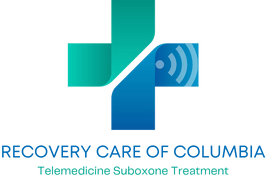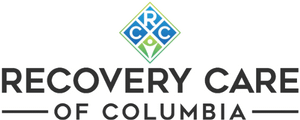Columbia Suboxone Clinic Blog
Is Opioid Addiction Similar to Diabetes? Understanding Two Chronic Conditions
At first glance, opioid addiction and diabetes might seem like entirely different conditions—one rooted in mental health and the other in physical health. However, these two chronic diseases share surprising similarities in how they affect the body, how they’re managed, and the long-term implications they have on a person’s quality of life. For Tennesseans battling either condition, understanding these parallels can help reduce stigma and lead to more compassionate, effective treatment.
✅ Similarities Between Opioid Addiction and Diabetes
1. Both Are Chronic Diseases
Opioid addiction and diabetes are not short-term illnesses that simply resolve on their own. They’re both classified as chronic diseases that require long-term treatment and lifestyle adjustments. While there’s no permanent cure for either, both can be managed successfully with medical support and personal commitment.
2. Long-Term Health Risks
Left untreated, both conditions can lead to severe, even fatal complications. Diabetes can result in kidney failure, heart disease, nerve damage, and blindness. Similarly, untreated opioid addiction can lead to respiratory failure, overdose, infectious disease, and a wide array of mental and physical health problems.
3. Daily Management Required
Diabetes management may involve checking blood sugar, insulin injections, and careful dietary choices. Managing opioid addiction may include daily medication (like Suboxone), behavioral therapy, and avoiding high-risk situations. In both cases, success depends on commitment, consistency, and access to the right resources.
4. Impact on Quality of Life
Both conditions can deeply affect relationships, employment, emotional well-being, and independence. Living with either disease requires a major lifestyle shift—and often support from healthcare providers, family, and peer support groups.
5. Cost of Treatment
The financial burden can be substantial. Medications, counseling, and monitoring tools for either condition can add up, especially without insurance. Fortunately, Tennessee residents with TennCare may be eligible for 100% coverage of their opioid addiction treatment, including medication and counseling through certified providers.
✅ Differences Between Opioid Addiction and Diabetes
Despite their similarities, the two diseases diverge in key ways:
-
Origin: Diabetes is a metabolic disorder caused by issues with insulin production or use. Opioid addiction is a mental and behavioral health condition often triggered by trauma, genetics, or exposure to opioids.
-
Cravings and Withdrawal: While diabetes does not involve cravings, opioid addiction is defined by intense urges and painful withdrawal symptoms when the drug is not present.
-
Stigma: Diabetes is generally viewed with sympathy. Opioid addiction, by contrast, is often misunderstood as a moral failing rather than the chronic medical condition it is.
✅ The Disease of Addiction: A Closer Look
Addiction is not simply a lack of willpower. It’s a neurological disorder that changes the way the brain functions, especially in areas related to reward, motivation, and decision-making.
The 3 Phases of Opioid Addiction Treatment
-
Induction:
The beginning phase where a patient transitions from harmful opioid use to Suboxone (buprenorphine + naloxone). Suboxone blocks withdrawal symptoms and reduces cravings. -
Stabilization:
This short-term phase (typically 2–4 weeks) helps the patient re-establish a sense of physical and mental normalcy. -
Maintenance:
The long-term phase where the patient continues Suboxone to prevent relapse, attend regular check-ins, and rebuild their life with ongoing counseling and support.
✅ Why Suboxone Is Safer Than Opioids
Suboxone is a life-saving alternative to full opioids like heroin, fentanyl, oxycodone, and hydrocodone. Here’s why:
-
Partial Agonist: Buprenorphine activates the brain’s opioid receptors, but only partially—reducing the risk of euphoria, overdose, and respiratory depression.
-
Contains Naloxone: The added naloxone blocks the effects of other opioids and prevents misuse.
-
Prescription-Only: Suboxone is regulated by the FDA and only available through licensed providers.
-
Improves Function: Patients report better sleep, more energy, stable moods, and restored relationships.
✅ Why People Become Addicted to Opioids
Many individuals across Tennessee never intended to misuse opioids. They were prescribed painkillers after surgery or injury and found themselves dependent. Here are common risk factors:
-
Genetics: Some people are more neurologically sensitive to opioids and are at higher risk for dependency.
-
Mental Health: Anxiety, depression, and PTSD often drive people to self-medicate with opioids.
-
Trauma: Physical, emotional, or sexual trauma—especially during childhood—can increase vulnerability.
-
Euphoria: The initial “high” from opioids is intensely pleasurable, making continued use tempting even after pain subsides.
✅ Treatment Is Within Reach — Especially in Tennessee
While diabetes may be managed with insulin and nutrition, opioid addiction requires a multifaceted approach: medication, behavioral support, and often group therapy.
At Recovery Care, we offer 100% telemedicine-based Suboxone treatment for people across Tennessee. We serve all counties and accept TennCare plans like BlueCare, Amerigroup, United Healthcare, and Wellpoint.
With us, you can:
-
Start treatment from home using a smartphone or computer
-
Access licensed Suboxone doctors
-
Receive medication shipped to your local pharmacy
-
Get support from experienced recovery counselors
✅ Start Your Recovery Today
If you or a loved one is suffering from opioid addiction, help is only a click away:
You are not alone. Recovery is possible—and you don’t need to leave home to begin.



